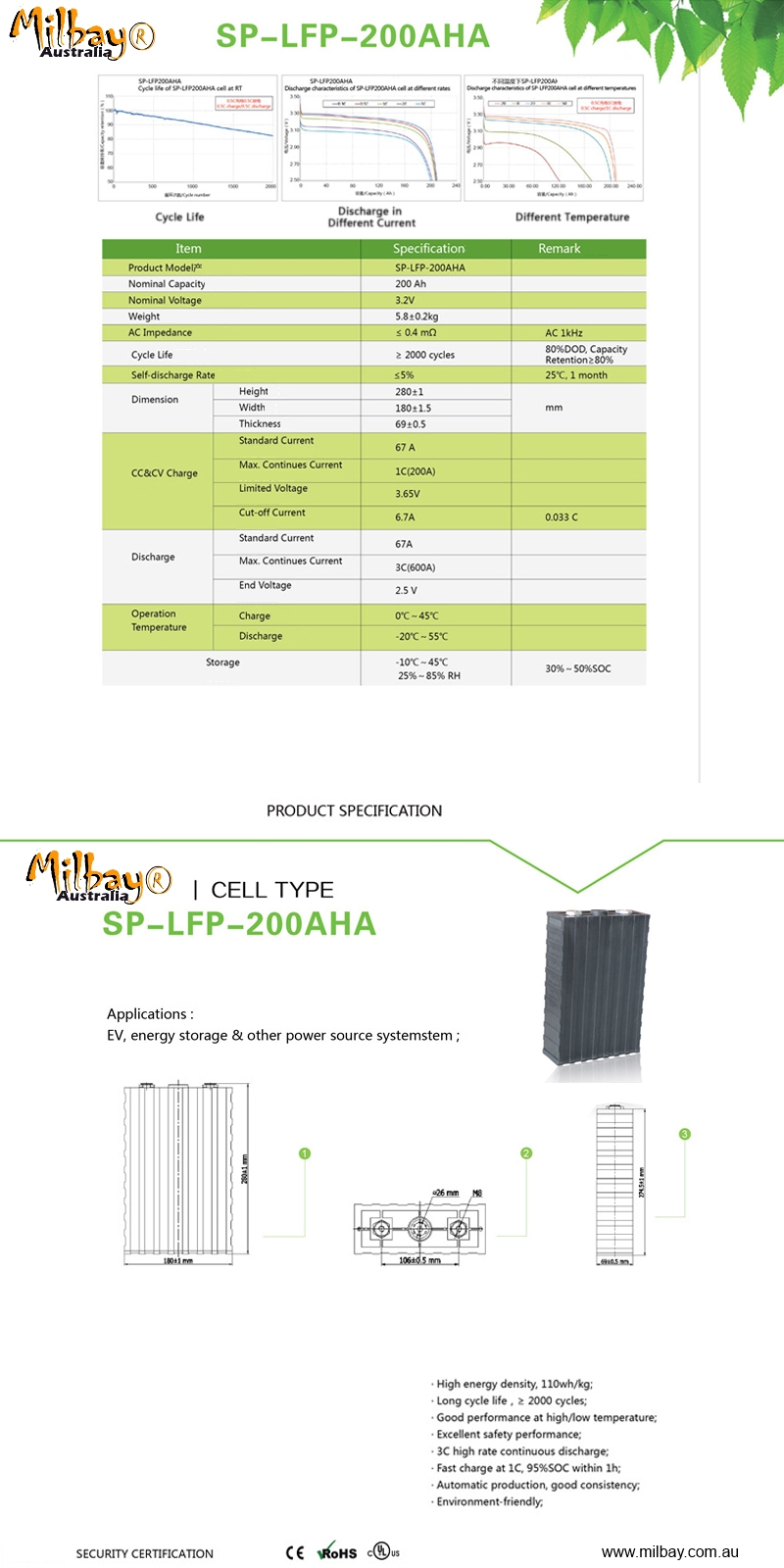Battery Management Systems
Energy Storage Systems (BESS) - Buses - Rail - Passenger and commercial vehicles - Motorcycles - Boats
Energy Storage Systems (BESS) - Buses - Rail - Passenger and commercial vehicles - Motorcycles - Boats
Milbay Australia offer a range of scalable battery management systems compatible with our range of Lithium Phosphate (LiFePO4) cells in system voltages from 12V DC to 900V DC.
Whether you’re looking for an intelligent battery management system or complete battery system for large scale fixed energy storage, public transport or a personal electric vehicle conversion Milbay can supply a solution to meet your project requirements.
| Model | Price |
|---|---|
| BMC | $ P.O.A |
| BMU-12S | $ P.O.A |
| BMU-24S | $ P.O.A |
| BMU-48S | $ P.O.A |
| BMU-60S | $ P.O.A |
 EV05 Series Battery Management Platform
EV05 Series Battery Management Platform
The E-Pow™ BMS platform is suitable for a wide range of electric vehicle battery systems for commercial vehicles, passenger cars, bus and special vehicles, and is compatible with lithium manganate, ternary, LiFePO4 (Lithium iron phosphate) and Lithium titanate battery cells. The E-Pow EV05 flexible modular platform allows battery designers to locate the battery cells in seperate environmentally controlled battery enclosures connected in series with centralised battery system management.
Topology: BCU (Battery Control Unit / main controller) plus one or more BMU (Basic Management Unit / slave controller)
Cell Balancing: Passive (dissipated) equilibrium:100mA
CAN communication Vehicle CAN (500K), charging CAN (250K), internal CAN (500K)
Country of manufacture China (mainland)
Working principal
A working system design requires a minimum of 1 x BCU main controller unit plus a minimum of 1 x BMU slave controller as each unit performs different tasks within the battery management system.
The master BCU communicates with the slave BMUs over a dedicated internal CAN communication channel to create a total Battery Management System (BMS).
EV05 Features and options
Configurations up to 300 cells in series (900VDC)
Multiple Temperature sensor
Fan and heater control
CAN communication integration
OBD diagnostics
Configuration software (PC based)
Suitable for modular battery systems
Suitable for slow or FAST charging
BCU, BMU and cell connection cables customised on request
EV05 Battery Management Systems include detailed installation instructions.
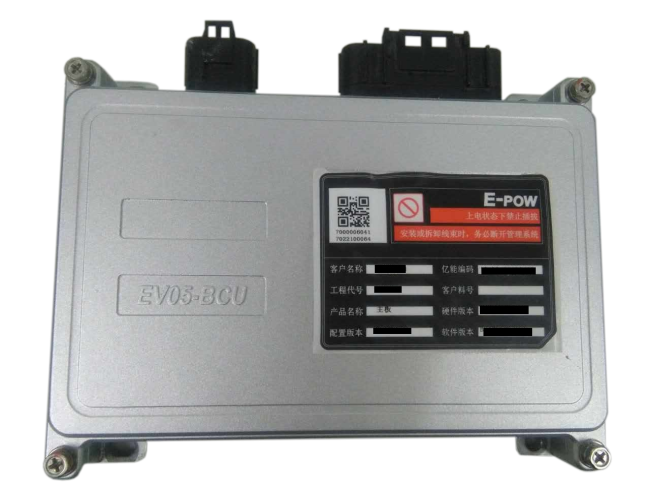
Master BCU modules communicate accross CAN network channels with slave BMC modules and other CAN nodes such as the vehicle controller and battery charging system to undertake intelligent actions and adjustments to the battery system in real time.
BCU (Battery Control Unit) module manages
Overal battery system discharge and charge
Battery system performance.
Calculating SOH and SOC values
Performing battery system OBD malfunction analysis
CAN battery system messages and alarm alerts.
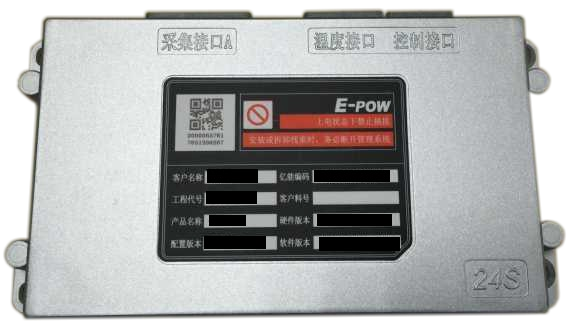
BMU (Basic Management Unit) slave modules manage
Individual battery cell voltage detection
Single cell temperature detection
Cell balance management
Balanced failure self-diagnosis functions
Battery enclosure thermal management (heating + cooling).
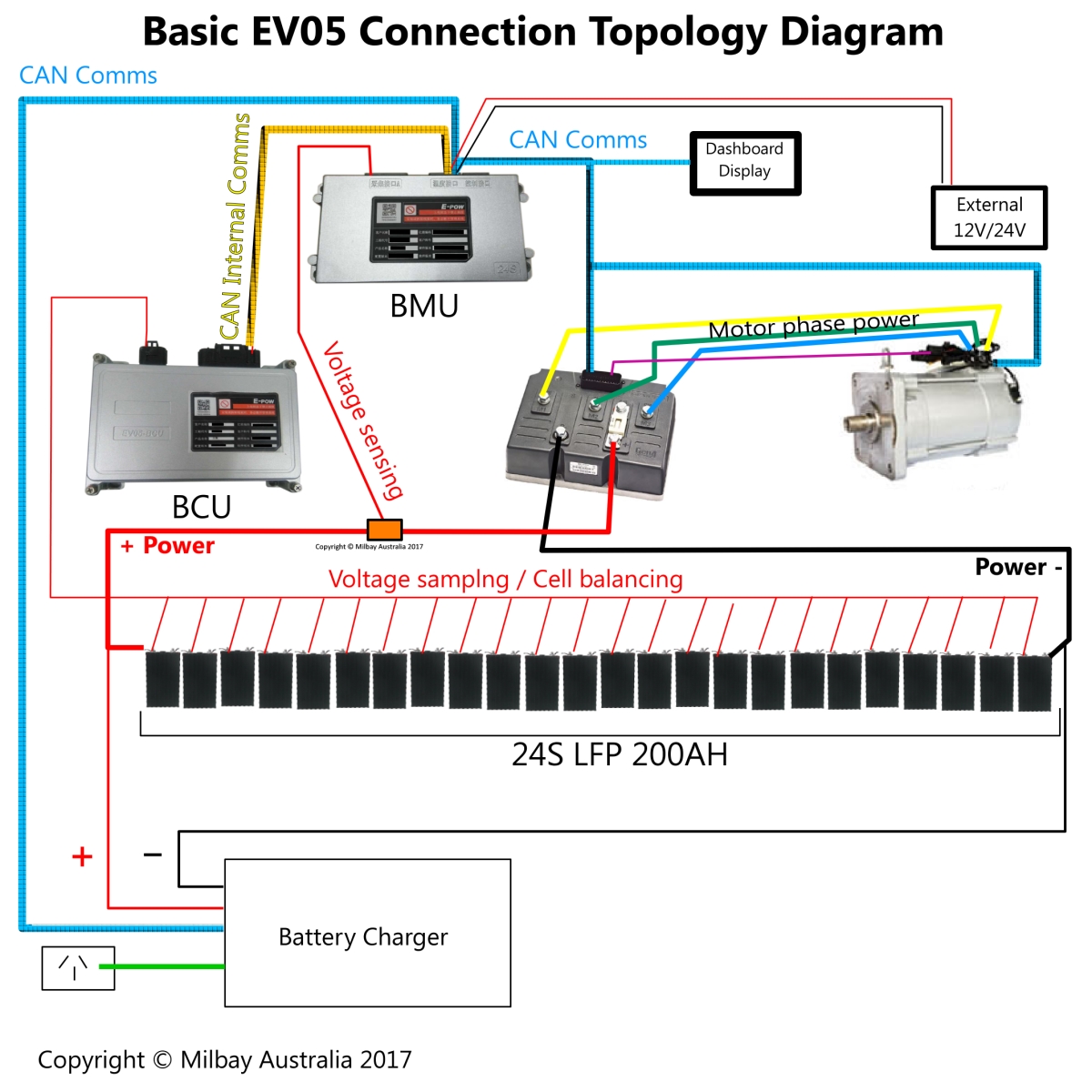
| E-Pow EV05 Technical Specifications | ||
|---|---|---|
| Description | Technical parameters | |
| BMS working voltage range | 12V (6V~18V), 24V (12V~32V) | |
| BMS Operating power(rated / peak) | BCU (Battery Control Unit): 3.6W / 120W (peak duration 10mS) BMU (Basic Management Unit): 2.8W / 120W (peak duration 10mS) |
|
| BMS Static power consumption | BCU (Battery Control Unit): ≤1mA Each BMU (Basic Management Unit): ≤0.1mA | |
| BMS Operating temperature range | -40ºC~85ºC | |
| BMS Storage Temperature Range(ºC) | -40ºC~95ºC | |
| BMS Operating Humidity Range(%) | 5%~95% | |
| Single cell voltage detection range | 0~5V | |
| Single cell voltage sampling accuracy | ≤±10mV ( 2V~5V@-25ºC~55ºC ) | |
| Single cell voltage sampling frequency | <20mS | |
| Total voltage detection channel number | 2 (Check the internal total voltage and the external total voltage) | |
| Total voltage measurement range | 0V~900V | |
| Total voltage detection accuracy | <0.5%FSR ( FSR: Full-Scale Range ) | |
| Temperature measurement range | -40~125ºC | |
| Temperature detection accuracy |
≤±1ºC (NTC,@0~65) ≤±2ºC (NTC,@-40~0) ≤±2ºC ( NTC,@65~125 ) |
|
| Current detection accuracy | <1%FSR (FSR: Full-Scale Range ) | |
| Insulation monitoring | Divided into three situations, 0: no fault (> 500 ohms / volts), 1: general failure (100 to 500 ohms / volts), 2: Severe fault (<100 ohm / volts) |
|
| Insulation fault judgment basis | GB/T 18384.3-2001 | |
| SOC estimation accuracy | <8% ( BEV (Battery Electric Vehicle) working condition ) |
|
| Balanced mode | Passive equilibrium: 100mA | |
| External CAN interface number | 2 high-speed CAN (where vehicle CAN can be configured with CAN wake-up function) | |
| BCU (Battery Control Unit) relay control road number | 6-way (4-way control power supply positive, 2-way control power ground | |
| BMU (Basic Management Unit) relay control road number | 2 way (can only control the power supply ground) | |
| Relay power (peak) | In general, intermediate relays are not required | |
| National standard charge signal detection | Support slow charge CC and CP signal detection; support fast charge CC2 signal detection. |
|
| EMC performance testing | E-POW Enterprise reference standard | |
| Fault data record | YES | |
| BCU (Battery Control Unit) Weight | 0.65KG | |
| 24S-BMU weight | 0.63KG | |
| 36S-BMU weight | 0.84KG | |
| 48S-BMU weight | 1.01KG | |
| 60S-BMU weight | 1.25KG | |
E-Pow EV05 BMS cable assembly components
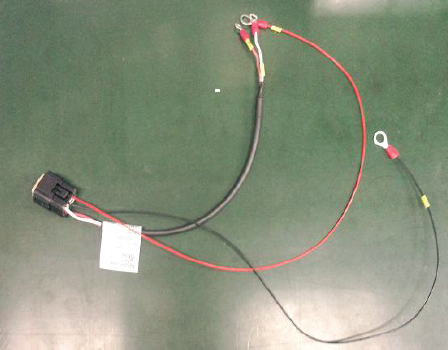
EV05 BMU 12 pin cable assembly
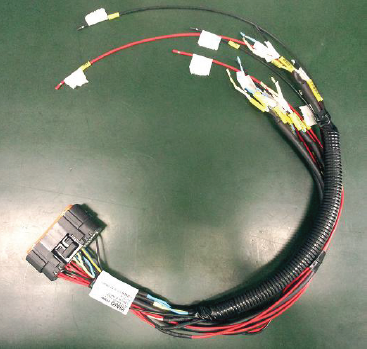
EV05 BMU 40 pin cable assembly
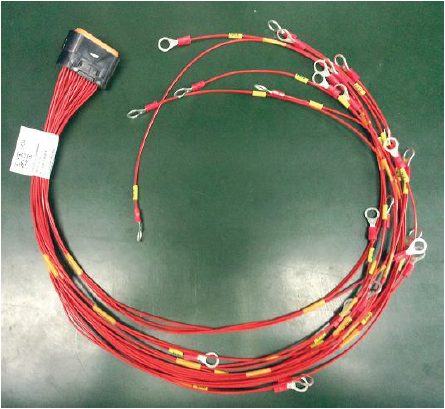
EV05 BMC 24S 26 pin cell voltage sense cable assembly
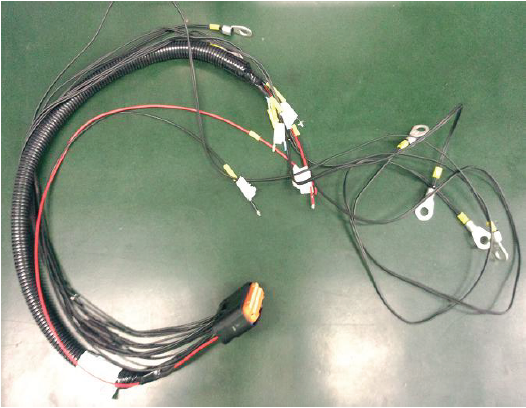
EV05 BMC 34 pin cable assembly

EV05 voltage shunt assembly
Example EV05 compatible 200Ah 3.2V Lithium Phosphate Battery Cell
